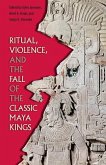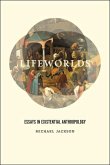In anthropology, as much as in the current popular imagination, kings remain figures of fascination and intrigue. As the cliche goes, kings continue to die spectacular deaths only to remain subjects of vitality and long life. This collection of essays by a teacher and his student -- two of the world's most distinguished anthropologists-- explores what kingship actually is, historically and anthropologically. The divine, the stranger, the numinous, the bestial--the implications for understanding kings and their sacred office are not limited to questions of sovereignty, but issues ranging from temporality and alterity to piracy and utopia; indeed, the authors argue that kingship offers us a unique window into the understanding fundamental dilemmas concerning the very nature of power, meaning, and the human condition. Besides general theoretical reflections, several essays included in the volume focus on particular case studies-- the BaKongo, Aztec, Shilluk, 18th century pirate kings of Madagascar, and others--though each also contains comparative material drawn from many other cases besides. With a jointly written critical introduction, richly framed with the wit and sharp analysis characteristic of these two thinkers, this volume opens up new avenues for how an anthropological study of kingship might proceed in the twenty-first century.
Hinweis: Dieser Artikel kann nur an eine deutsche Lieferadresse ausgeliefert werden.
Hinweis: Dieser Artikel kann nur an eine deutsche Lieferadresse ausgeliefert werden.








